There are few flowering shrubs that I adore more than the buttercup winter hazel. I was first introduced to this flowering shrub two decades ago upon on my first visit to Camellia Forest Nursery in Chapel Hill, NC. It was a cool March morning and the first plant that captured my attention was this remarkable bush full of pale, yellow flowers. As I approached, I was hit with a sweet fragrance and the sound of buzzing bees. I knew in that moment I couldn’t live a happy life without this plant!!
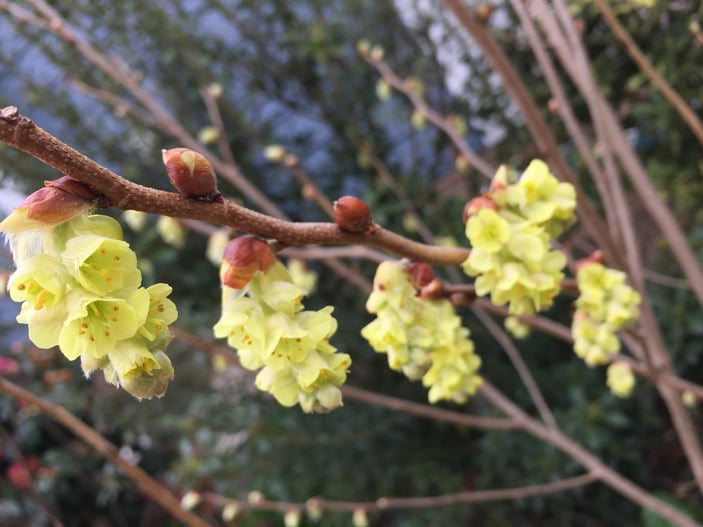
Buds and pale yellow blooms along the branches of Corylopsis are a sure sign of spring!
Most people associate forsythia with the arrival of spring, with its bright yellow branches that you can see even while speeding down the highway. But for me, when I see the buds swelling on my Corylopsis I know that warmer days are coming.
Winter Hazel
The common name of “winter hazel” is a bit inaccurate as the flowers most often begin to fully open as the temperatures rise and daylength grows, really signaling the official start of spring! In fact, when I combed through the photos I have taken over the years, I noted that Corylopsis is usually in bloom at the end of March through the middle of April.
Corylopsis is an Asian native with nearly 30 different species reigning in the witch hazel family, Hamamelidaceae. The genus name is Greek, korylos, meaning hazel and opsis which translates to like. This is a reference to the foliage which looks very much like Corylus, better known as hazelnut or “Harry Lauders Walking Stick,” the interesting, contorted branch form. The foliage is quite attractive, with a pleated texture and beautiful yellow autumn coloration.
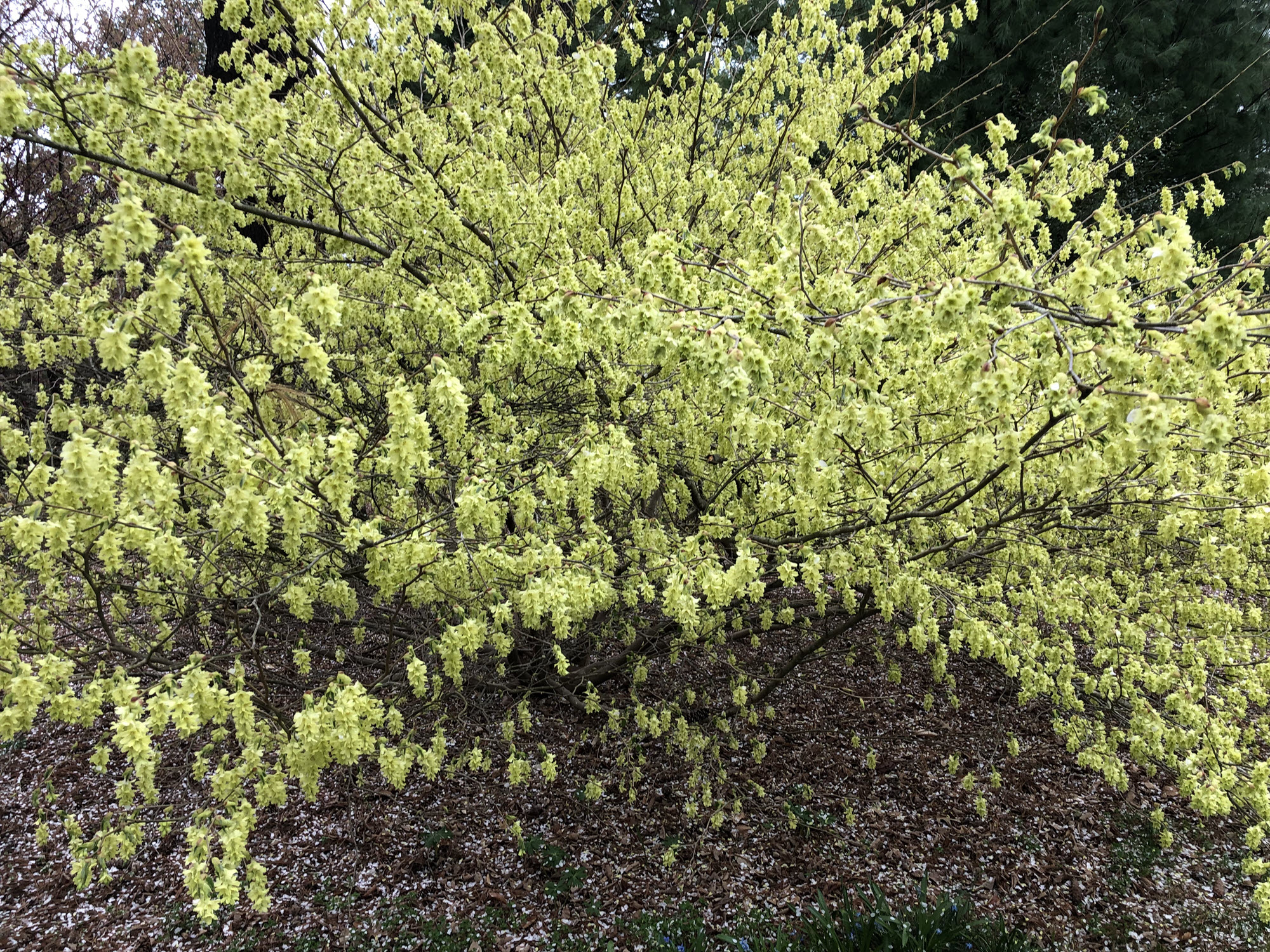
A winter hazel shrub in full bloom will be the star of your garden in early spring. The blooms are spectacular and the fragrance is an extra treat.
General Information
Choosing a site
There are four species of Corylopsis that thrive throughout the southeast providing exceptional spring beauty, requiring little maintenance, and needing ample space to flourish. Hardy in zones 6-8, they are best grown in full sun to part shade and prefer acidic, well-drained soil enhanced with plenty of Soil³. When planting be sure to dig a hole twice the size of the pot and add a generous amount of Soil³ compost.
Pruning
In my experience they have proven to be ideal “back of the border” plants so they can grow to their full capacity of about 10’ tall and wide without pruning. If do you need to cut them back, I recommend waiting until the buds develop on the branches in late winter so you can take the trimmings inside and enjoy the fragrant blooms.
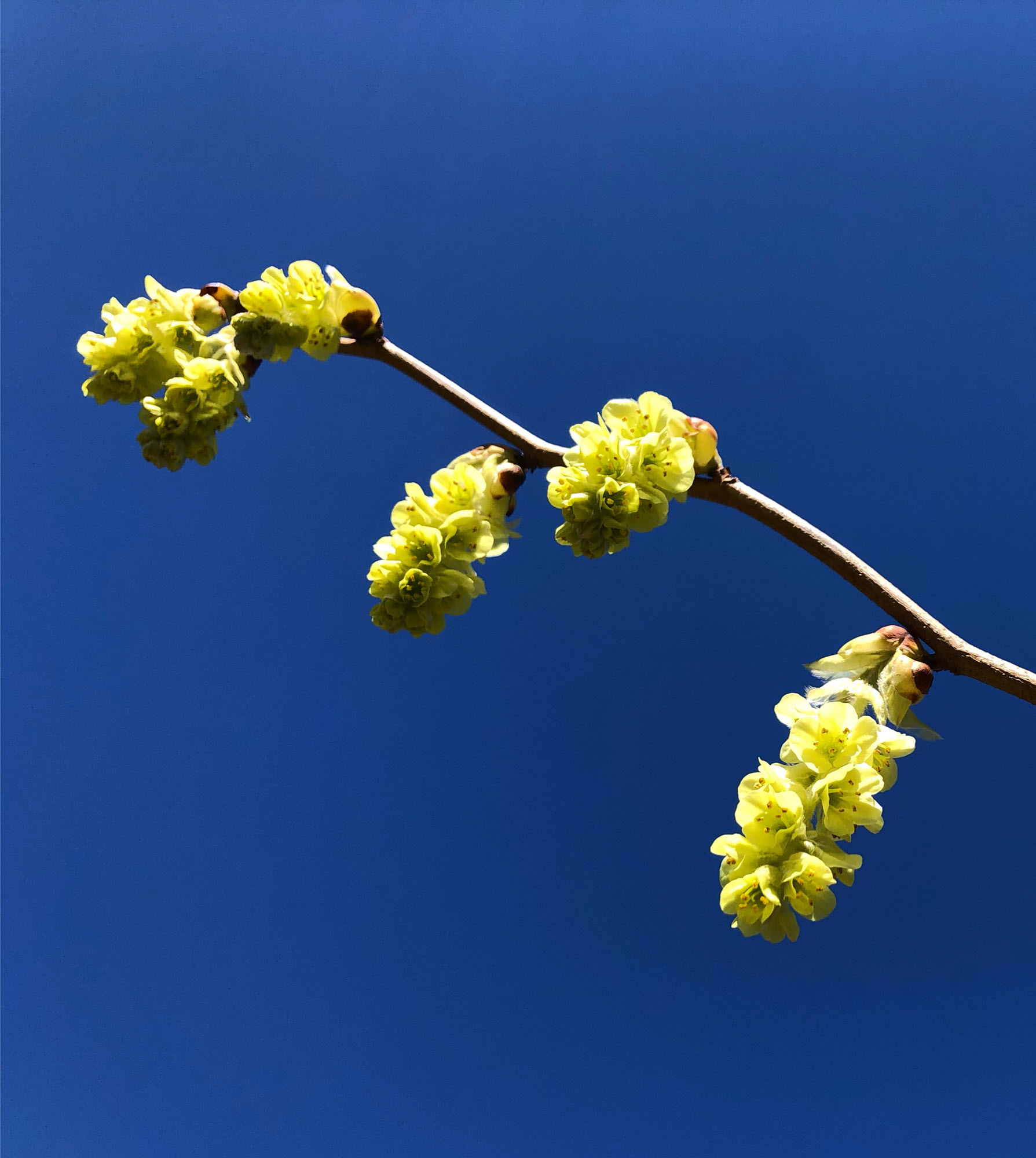
Fertilizing
Long term maintenance includes topdressing with Soil³ compost annually. I usually add 3-4” to the base of my plants every fall. This will ensure the root system remains happy and my plants will thrive for the year to come.
Winter Hazel Varieties
- Fragrant Winter Hazel Corylopsis glabrescens var. gotoana
This variety gets its common name due to its scented flowers. The Japanese native has a spreading, multi-stemmed habit growing to about 8’ tall and 12’ wide in ten years. Each spring, before the foliage emerges, fragrant, pale-yellow flowers appear in 2” long drooping clusters, technically called racemes.
- Buttercup Winter Hazel Corylopsis pauciflora
With a petite growing habit and slender branching structure, this is an ideal plant for smaller spaces. Reaching only 4’ tall and wide this species offers delicate, primrose yellow blooms that fill the air with a sweet scent in early spring.
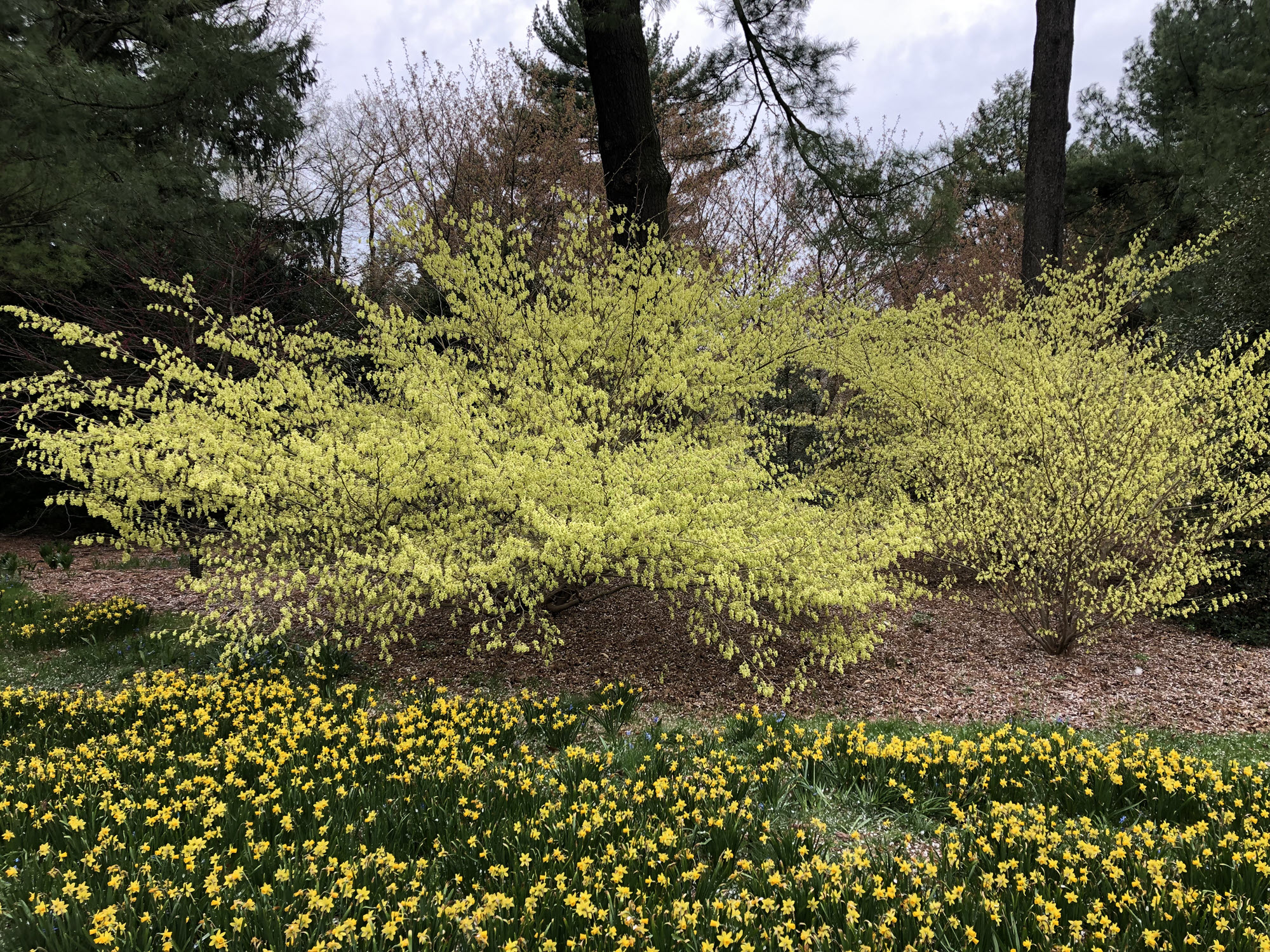
Corylopsis pauciflora putting on a show with daffodils.
- Chinese Winter Hazel Corylopsis sinensis
This is the plant I first fell in love with! With a robust, upright growing habit and large, showy blossoms this species can easily grow to 15’ tall and is a showstopper when in full bloom. It is a plant I would never garden without.
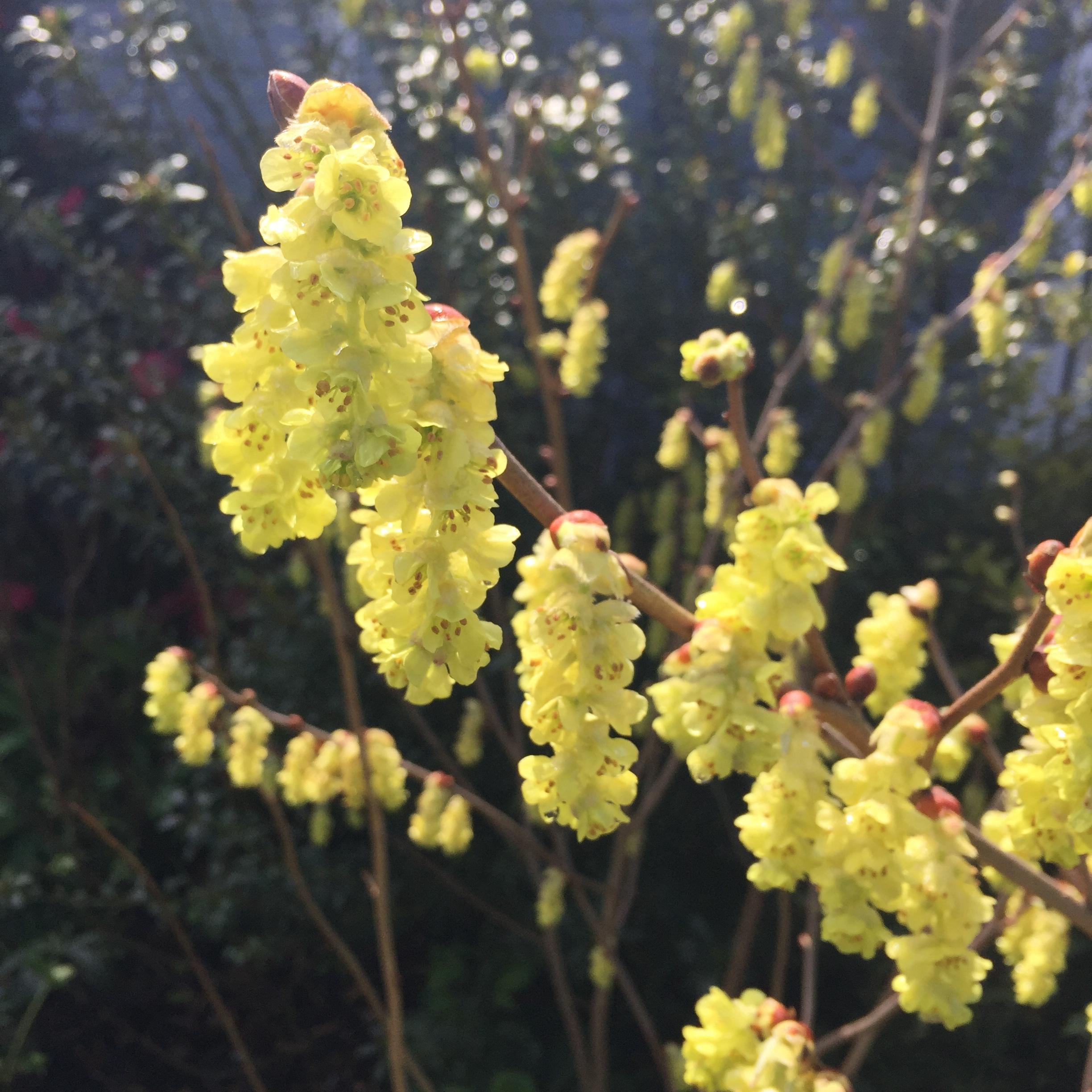
Corylopsis sinensis is one of the larger growing varieties.
- Spike Winter Hazel Corylopsis spicata
Another fantastic species to include in your garden for its large golden flowers that adorn bare branches in early spring. One of my all-time favorites is the cultivar ‘Golden Spring’, which is sometimes sold as ‘Aurea’. This variety offers chartreuse foliage all summer long before turning brilliant yellow in the late fall. See some photos of the foliage on JC Raulston Arboretum's page.
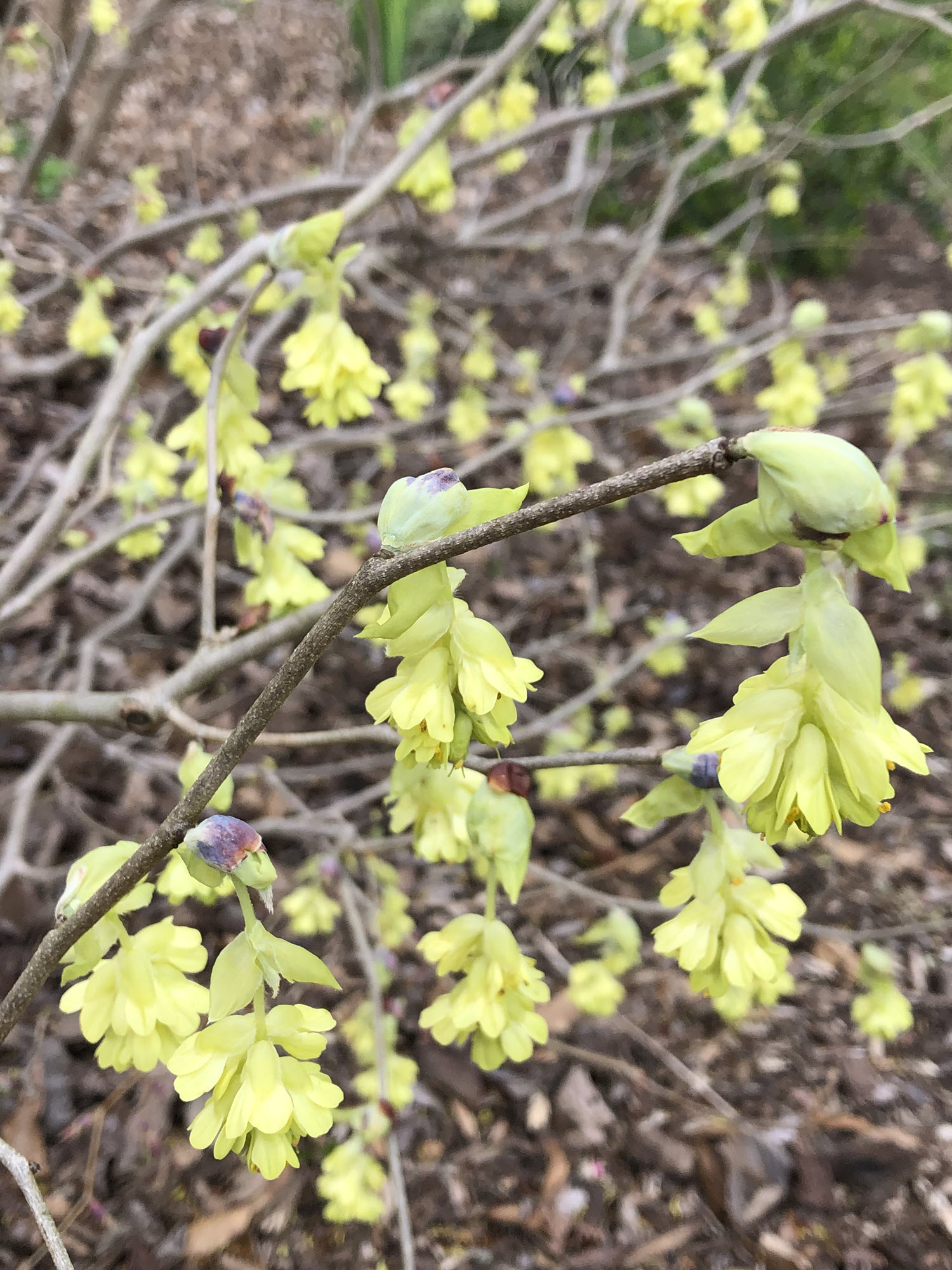 Corylopsis spicata 'Golden Spring' is one of my favorite cultivars which features bright chartreuse foliage in the summer for interest all year long.
Corylopsis spicata 'Golden Spring' is one of my favorite cultivars which features bright chartreuse foliage in the summer for interest all year long.
| Botanical Details |
|
Botanical Name: Corylopsis
Common Name: winter hazel
Family: Hamamelidaceae
Hardiness: USDA Zones 6-8
Size: 8-12’ tall x 8-12’ wide depending on variety,
Corylopsis pauciflora is smaller at 4-6' tall x 4-6' wide
Location: Full sun to part shade
Soil: Acidic, well-drained and organically rich
Bloom Time: Early Spring (March - April)
Foliage: Deciduous
Flower: Showy, Fragrant
|
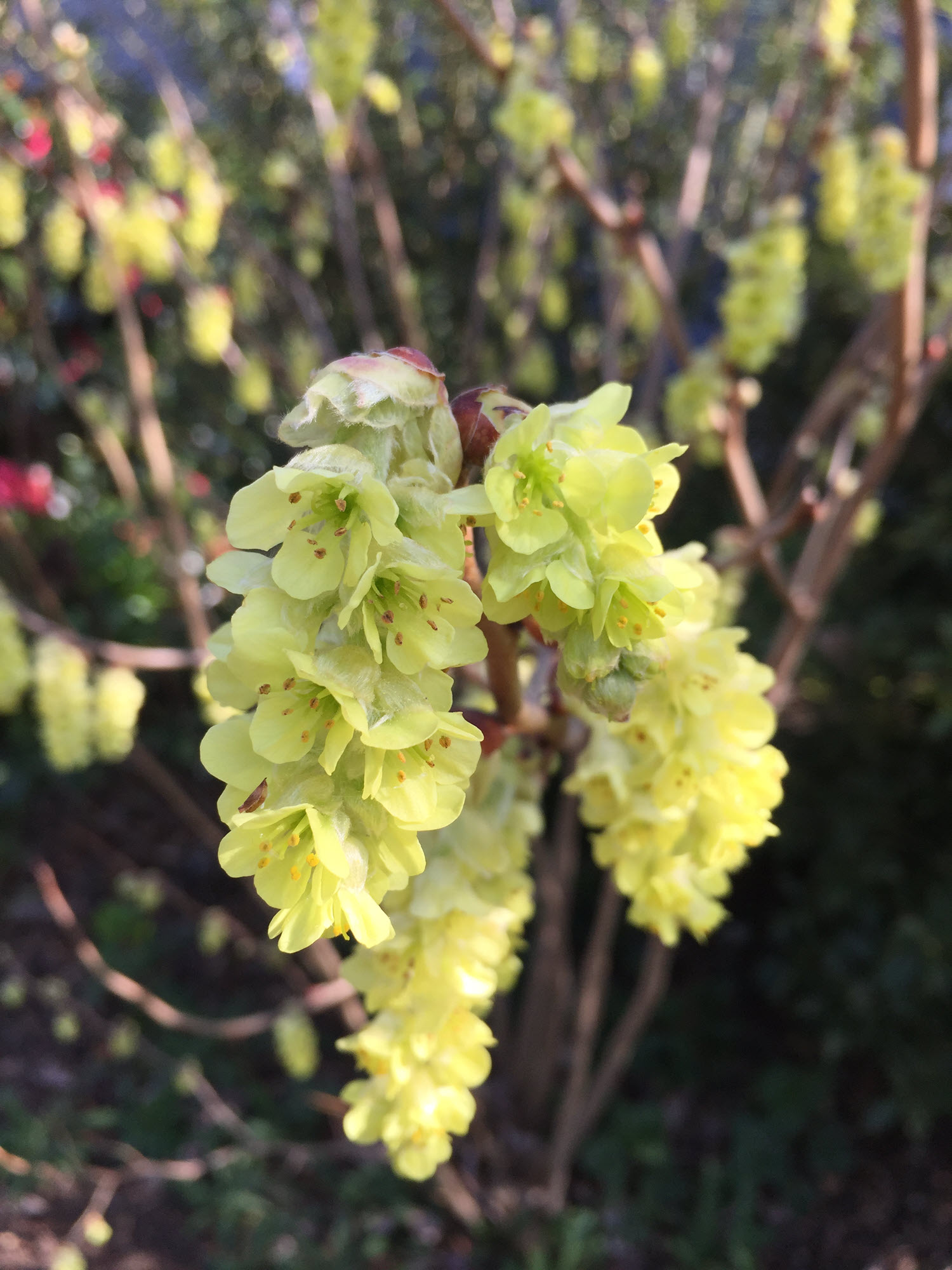
Winter hazel has fragrant, pendulous yellow blooms that are 1-2" long.
Just Grow It
This underutilized deciduous shrub will not disappoint, which is why I want to raise awareness about it. Part of my goal with these Soil³ Plant Picks is to encourage home gardeners to see beyond the basic plants and start asking your garden centers to carry more diversified options. Winter hazel is an easy to grow, low maintenance shrub with gorgeous flowers. And it deserves a spot in your garden!
Looking for more plants to make your garden smell amazing all year long? Check out my 20 Must-Have Trees & Shrubs for Fragrance.
Brie
Photos by Brie unless otherwise noted.
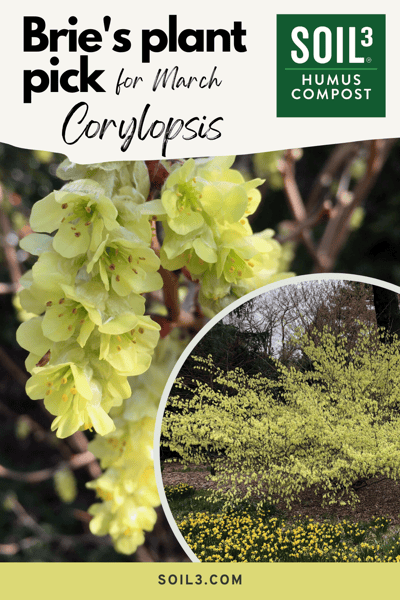
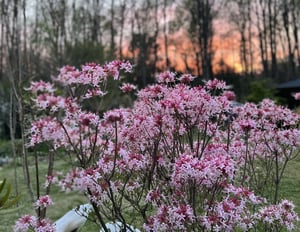
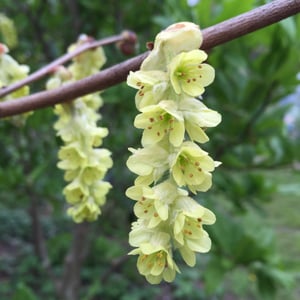

Did this help you out? Have any questions for clarity? Leave a comment below!